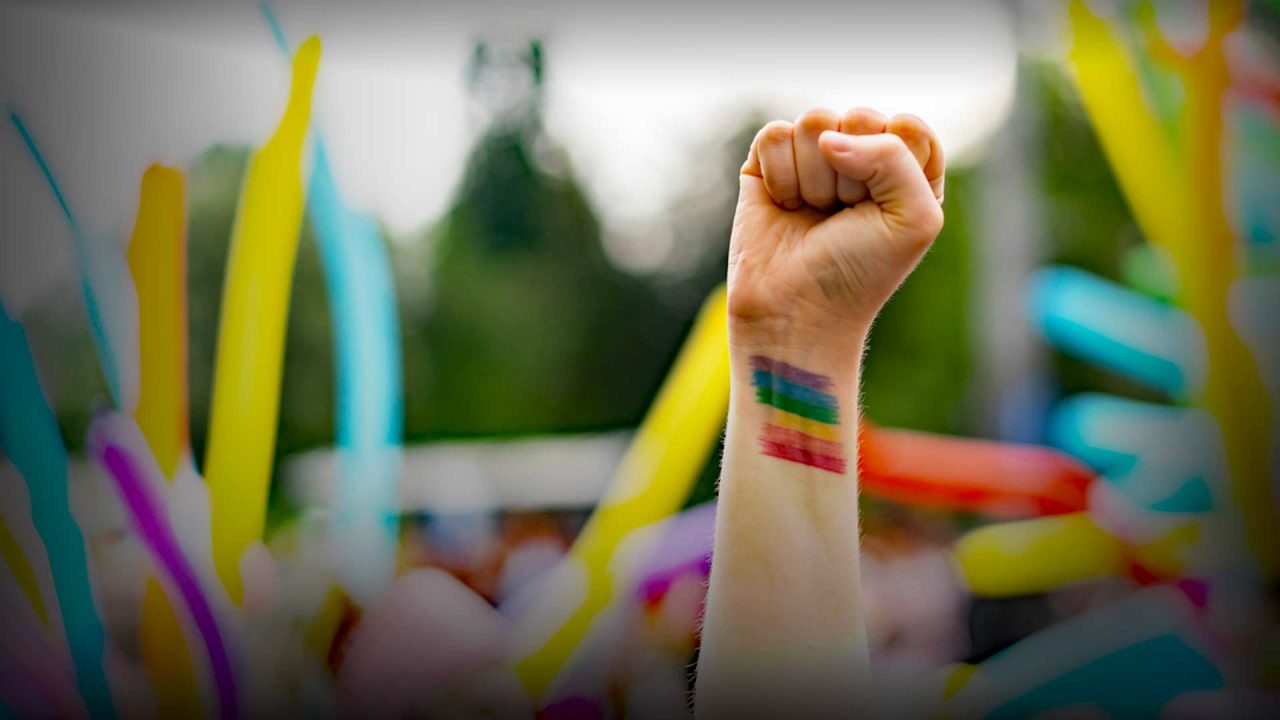
Even hard-left LGBTQ activists have a difficult time keeping up with ever-changing inclusivity and intersectionality protocols. Last month, Homer Pride organizers committed a woke taboo by featuring a white person’s raised fist in its marketing materials for its June 17 celebration of all things LGBTQAI2+.
Across the nation, gay rights groups have been partnering with black, indigenous and people of color (BIPOC) in an effort to grow followers. It’s called “intersectionality,” which defines individual identity — and all of human history — in terms of interwoven systems of oppression based on gender, sexual orientation, race and income inequality.
LGBTQ activists have used this controversial philosophy to effectively cast themselves as victims – akin to black Americans who struggled for basic civil and human rights.
Homer Pride organizer Jerrina Reed, who uses “She/Her/They” pronouns, wrote an effusive apology in her May 22 Facebook Post to assure her followers that Homer Pride is still sufficiently inclusive, despite the cultural snafu.
“We particularly value the inclusion and empowerment of our BIPOC friends, family, allies, and communities,” she wrote. “Our goal in celebrating Juneteenth x Pride is to acknowledge the overlapping liberation movements of the LGBTQ+ community, the Black community, Indigenous people, and people of color.”
Reed went on to express “deepest regrets” and “heartfelt apology” to the black community for depicting a white person’s fist in the Pride propaganda.
ALASKA WATCHMAN DIRECT TO YOUR INBOX
“Our recent marketing for this year’s event, which featured a white fist, was an unfortunate mistake, not an intentional act,” Reed explained. “Nonetheless, we recognize the harm it may have caused and sincerely apologize. We extend our gratitude to everyone who held us accountable for our error and helped us learn from it. We will strive to improve and grow together.”
Reed then pledged to seek “universal equity,” and expressed hope that each person will be “blessed with abundant self-love and compassionate care, fostering respect for all intersectional identities.”
The idea of entangling the LGBTQ agenda with the historic struggle of African Americans is not without controversy, especially among many conservative black churches which have historically seen the civil rights struggle in terms of living up to the nation’s Christian beliefs that God created all men equal.
Alveta King, niece to Rev. Martin Luther King, Jr., is one of the more outspoken critics of intersectionality, which she says commandeers and distorts history for the purposes of advancing an unrelated LGBTQ agenda.








8 Comments
Okay… So, they are racists too ???
We already knew that.
Yeah.. I know.. And, I wanted to point it out again in my “suggestion”. Its’ kinda like the “alleged” insert in any of the reporting now days.. But.. I am glad that you know it also.
Well, it’s hard to keep track of all the perversions and what the particular hierarchy of the day might be. Intersectionality pits all the supposed “victims” of “oppression” against one another to see who is the most victimized, here in the first world country of the USA where nobody is actually prevented from doing anything legal, like working hard to get ahead. No, none of it makes the slightest sense, but it keeps useless “academia” busy inventing more nonsense rules and regulations for the rest of us, who couldn’t actually give one fat rat’s backside about any of it.
It is almost impossible to keep up with the crap.. See my short response to P A above.
Funny stuff. Wait, she was serious in her apology? She’s *supposed* to see race above all else? Doesn’t the rainbow wrist out-weigh the white fist? That’s a thing – right? Help me out here. This is like one of those math problems of when will the train from Chicago departing at noon will pass the car from Ohio that left at 10 am, and they leave out the speed of train and if they’re both headed for the same destination.
WokeTard b.s.
This grows more tedious by the day.
Wait till they realize that English is the language of the white oppressors. They’ll have to create a whole new language – Wokish.